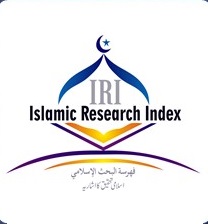Ostracism and Violence in The Contemporary History of Religions
DOI:
https://doi.org/10.58932/MULF0032Keywords:
Correlation, violence, ostracism, Islamophobia, basic human needs, religious minoritiesAbstract
Psychology explores the motivation for certain kinds of behaviour such as violence. This study investigates the correlation between religion-based violence and ostracism. There is evidence to suggest that those who are chronically ostracized could become involved in forms of extremism and violence that is not necessarily inspired by their religious tradition. Religious minorities belonging to any faith sometimes join extremist groups after being ostracized in order to compensate for their basic human need to belong. If Islamophobia is understood as the exclusion of Muslims from western societies, it is one form of ostracism. Some Muslims in Europe feel that the wider society does not recognize them as full citizens. Moreover, anti-Semitism and negative attitudes to the Christian community in Pakistan are also examples of ostracism. Policy-makers could take steps to reduce the danger of the violence provoked by ostracism.
References
Adil, Y. (2020). Dealing With Exclusion and Otherization: A Case of Ahmadi Muslims in India. JOURNAL OF SOCIOLOGY. Jadavpur University, 11(11), 99-120.
Ali, Z. (2015). Identity as a form of human insecurity: the case of religious minorities in Pakistan. JOURNAL OF HUMAN SECURITY STUDIES, 4(2), 108-126.
Burhani, A. N. (2014). Hating the Ahmadiyya: the place of “heretics” in contemporary Indonesian Muslim society. Contemporary Islam, 8(2), 133-152.
Freedland, J., & Hasan, M. (2019). Muslims and Jews Face a Common Threat from White Supremacists. We Must Fight It Together, The Guardian, April 4.
Gabsi, Z. (2019). Towards Demystifying Islamophobia: A Muslim’s Perspective. Australian Journal of Islamic Studies, 4(3), 1-18.
Gruter, M., & Masters, R. D. (1986). Ostracism as a social and biological phenomenon: An introduction. Ethology and Sociobiology, 7(3-4), 149-158.
Hales, A. H., & Williams, K. D. (2018). Marginalized individuals and extremism: The role of ostracism in openness to extreme groups. Journal of Social Issues, 74(1), 75-92.
Hales, A. H., Wood, N. R., & Williams, K. D. (2024). Ostracism and Extremism: How Extreme Groups Can Address
Threatened Needs. In M. Pfundmair, A. H. Hales & K. D. Williams (Eds.), Exclusion and Extremism: A Psychological Perspective. Cambridge University Press.
Knapton, H. M. (2014). The recruitment and radicalisation of western citizens: does ostracism have a role in homegrown terrorism? Journal of European Psychology Students, 5(1), 38-48.
Leary, M. R., Kowalski, R. M., Smith, L., & Phillips, S. (2003). Teasing, rejection, and violence: Case studies of the school shootings. Aggressive Behavior: Official Journal of the International Society for Research on Aggression, 29(3), 202-214.
Lei, Y., Li, M., Lin, C., Zhang, C., & Yu, Z. (2024). The effect of ostracism on social withdrawal behavior: the mediating role of self-esteem and the moderating role of rejection sensitivity. Frontiers in Psychology, 15, 1411697.
Mogib, M. (2012). Copts in Egypt and their demands: between inclusion and exclusion. Contemporary Arab Affairs, 5(4), 535-555.
Mujeeb, M. (Summer 2012). Coptic Discrimination and the Exclusion of the State in Egypt. Omran, 1(1), 189-212.
Pfundmair, M. (2019). Ostracism promotes a terroristic mindset. Behavioral Sciences of Terrorism and Political Aggression, 11(2), 134-148.
Pfundmair, M., Hales, A. H., & Williams, K. D. (2024). Exclusion and extremism: A psychological perspective: Cambridge University Press.
Riemenschneider, M. (2022). SITUATION OF CHRISTIANS IN THE MIDDLE EAST AND NORTH AFRICA: Konrad Adenauer Stiftung (KAS).
Veracini, L. (2022). Islamophobia, antisemitism, Zionism, settler colonialism. Islamophobia Studies Journal, 7(1), 96-107.
Warburton, W. A., Williams, K. D., & Cairns, D. R. (2006). When ostracism leads to aggression: The moderating effects of control deprivation. Journal of Experimental Social Psychology, 42(2), 213-220
Weiss, A. M. (2020). Countering violent extremism in Pakistan: local actions, local voices: Oxford University Press.
White, S. (2007). Jyllands-Posten and the Otherization of Europe’s Muslims. The Cartoon Debate and the Freedom of the Press. Conflicting Norms and Values in the Global Media Culture, 173-180.
Williams, K. D. (1997). Social Ostracism. In R. M. Kowalski (Ed.), Aversive Interpersonal Behaviors (pp. 133-170). Boston, MA: Springer US.
Williams, K. D. (2009). Ostracism: A temporal need‐threat model. Advances in experimental social psychology, 41, 275-314.
Downloads
Published
How to Cite
Issue
Section
License
Copyright (c) 2024 South Asian Journal of Religion and Philosophy (SAJRP)

This work is licensed under a Creative Commons Attribution-NonCommercial 4.0 International License.









